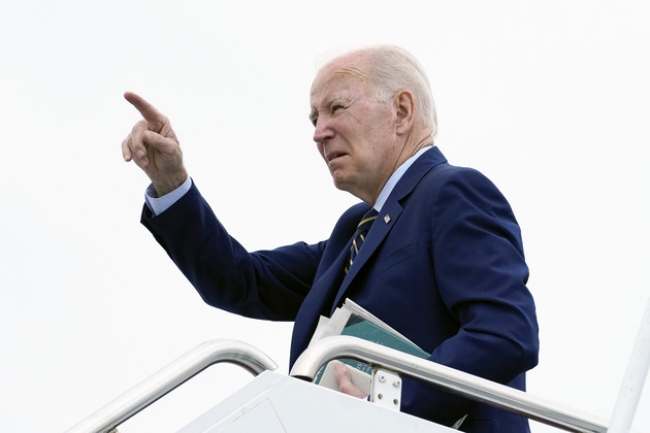US President Joe Biden signed an executive order Wednesday to curb some US investments in China's technology sector.
Multiple US officials who briefed reporters on the directive ahead of its public release said it is narrowly tailored to prohibit US firms from funding investment in Chinese firms that develop advanced technologies sensitive to national security.
That includes "technologies that are critical to the next generation of military innovation," said one official, who like the others, spoke to reporters on condition of anonymity because the order had not yet been issued.
Specifically, it will prohibit US investment in Chinese firms that develop semiconductors and micro electronics, quantum information technologies, and certain artificial intelligence systems.
The rule also requires American companies to notify the Treasury Department of certain other transactions with Chinese firms that involve other technologies and products that could endanger US national security.
"As part of a comprehensive, long-term strategy to advance the development of sensitive technologies and products, the PRC is exploiting, or has the ability to exploit, U.S. investments to further its ability to produce a narrow set of sensitive technologies critical to military modernization," the Treasury Department said in a statement.
It was referring to China by its formal acronym.
"Such U.S. investments are often accompanied by certain intangible benefits that help companies succeed, such as managerial assistance, investment and talent networks, and market access," it added.
It is not clear how China will react to the new directive amid an ongoing bilateral effort to improve badly-tattered US-Sino relations.
But multiple US officials described the Biden administration's action as a "small yard high, fence approach," emphasizing the goal is prevent China from developing dual-use technologies critical to its military advancement, not to harm trade.
"Ultimately, China doesn't need our money. They're a net capital exporter, so the thing we're trying to prevent is not money going into China overall, because they have plenty of money," said one of the officials.
"They don't have the know-how, and the know-how is often very connected to specific types of investments," he added.
The order has already been discussed between the government and industry leaders, and one official said it has already had "an impact" on investors.
"Just the fact that we've been talking about doing this, and that we're doing this, has had an impact in terms of what's happening with regard to private equity, and venture capital," he said.
"These firms have heard us in terms of our concerns in these three areas, and you're already starting to see movement," the official added.


